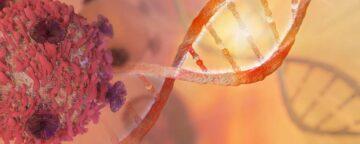Sahana Sitaraman in The Scientist:
 Glucose is the fuel to the cellular engine. It powers the cell’s functions and serves as the raw material for synthesizing various essential biomolecules, including the sugar backbone of DNA and RNA. It is crucial for the growth and proliferation of all cells in the body, including cancer cells. Yet, cancer cells thrive despite the fact that their surrounding environment—the tumor microenvironment—is severely depleted of glucose.1 In a new study published today (November 26) in Nature Metabolism, researchers at New York University Grossman School of Medicine reported that in the presence of certain chemotherapy drugs, cancer cells rewire their metabolisms to use a glucose-depleted tumor microenvironment to their advantage and escape death.2 “Our study shows how cancer cells manage to offset the impact of low-glucose tumor microenvironments, and how these changes in cancer cell metabolism minimize chemotherapy’s effectiveness,” said Richard Possemato, a cancer biologist and coauthor of the paper, in a press release.
Glucose is the fuel to the cellular engine. It powers the cell’s functions and serves as the raw material for synthesizing various essential biomolecules, including the sugar backbone of DNA and RNA. It is crucial for the growth and proliferation of all cells in the body, including cancer cells. Yet, cancer cells thrive despite the fact that their surrounding environment—the tumor microenvironment—is severely depleted of glucose.1 In a new study published today (November 26) in Nature Metabolism, researchers at New York University Grossman School of Medicine reported that in the presence of certain chemotherapy drugs, cancer cells rewire their metabolisms to use a glucose-depleted tumor microenvironment to their advantage and escape death.2 “Our study shows how cancer cells manage to offset the impact of low-glucose tumor microenvironments, and how these changes in cancer cell metabolism minimize chemotherapy’s effectiveness,” said Richard Possemato, a cancer biologist and coauthor of the paper, in a press release.
The improved understanding of the tumor microenvironment’s impact on the growth and survival of cancer cells will help guide the development of targeted treatments and predict responses to drugs under specific conditions.
More here.
Enjoying the content on 3QD? Help keep us going by donating now.
